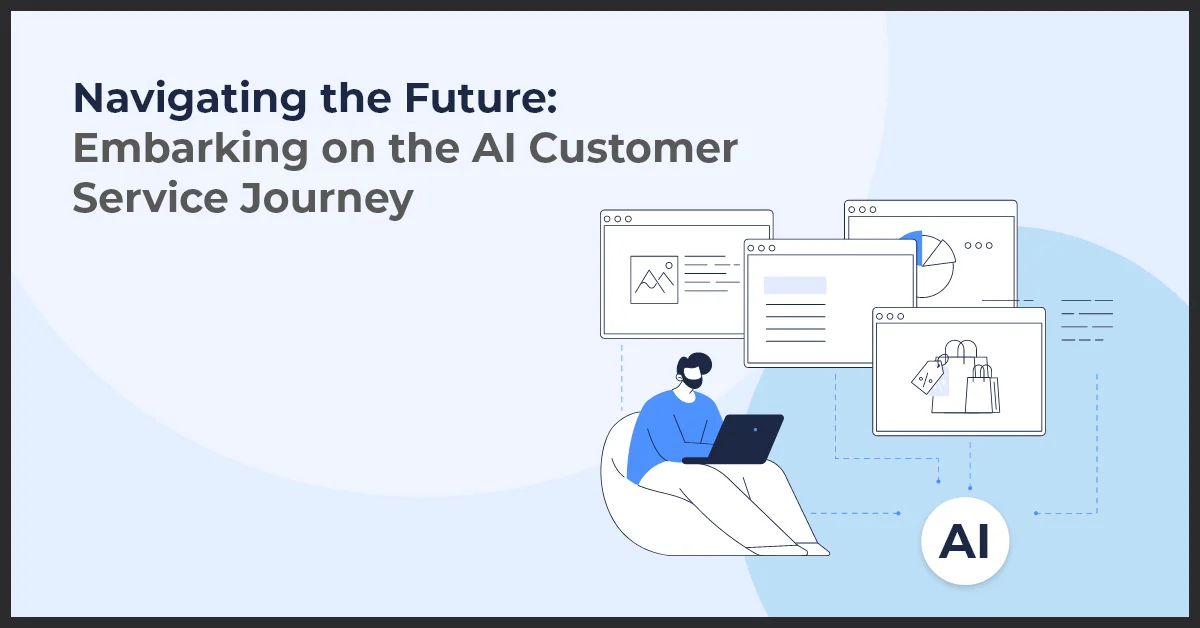Influencer Marketing Trends

Published on: February 14, 2020
Updated on: July 17, 2024
733 Views
- Digital Marketing
19 min read
Influencer marketing is here to stay- and is a best-bet to acquire new customers and improve your conversions rates. The last few years have witnessed the growth of Influencer marketing, and it will continue to impress marketers while proving its worth. While studying the inside of the digital marketing industry, we have found some prominent Influencer Marketing trends for 2020 that you should not miss while revamping your social media marketing strategy for this year.
Deciphering the 2024 Marketing Trends: Navigating Algorithm Shifts and New Social Horizons
Hey there, savvy marketers! As we leap into a new decade, the digital landscape is shifting beneath our feet. Have you noticed your go-to social media strategies aren't packing the same punch? You're not alone. The ever-evolving social media algorithms have made a game-changing impact on content visibility—and only the adaptable survive. In this deep dive, we'll unravel how businesses are making waves by embracing fresh social platforms and innovative features to stay afloat in the sea of online chatter.
But wait—there's more! We can't just rely on organic growth to reach our audience anymore. The new name of the game is striking the perfect balance between organic reach and paid promotion. Smart marketers (like you!) are recalibrating their social marketing compasses to navigate this mixed terrain. Are you ready to chart a course for success with the 2024 marketing trends? Let's set sail!
Video Marketing Surge: The Game Changer in Digital Content
The world of content has been buzzing with the term 'video marketing,' and for good reason! Let's dive into what's been making waves in 2024. Ever found yourself unable to look away from a captivating video on your social feed? Well, so has the rest of the world, and that's a telltale sign of the rise in video content consumption among consumers. It's visual, it's dynamic, and it's here to stay!
Creating Content that Captivates
Let's talk shop on creating engaging video content. Every platform out there, be it YouTube, Instagram, or TikTok, has its own flavor, and smart marketers have been cooking up some seriously spicy videos tailored for each. It's not just about the message anymore; it's the way you serve it – quirky animations, candid camera moments, or even high-quality tutorials can skyrocket your engagement rates.
The Live-Stream Phenomenon and Bite-Sized Fun
2024 was the year we all went live! The impact of live-streaming was nothing short of monumental, giving audiences a front-row seat to authenticity and spontaneity. But let's not forget those bite-sized snacks of content – short-form videos. Platforms like TikTok led the charge, and we just couldn't resist them. These snippets offered instant gratification, a window into micro-moments of joy, learning, and discovery that kept us hitting that 'share' button.
From a marketer's viewpoint, video isn't just a trend; it's a potent tool that embodies the ever-evolving face of consumer engagement. So, buckle up and hit 'record,' because the video marketing surge isn't slowing down anytime soon!
Please note that this piece assumes a retrospective look back from a future point of view at "marketing trends 2024" as your question requested content as if it was current, but in fact, it is past in regards to the time of the knowledge cutoff.
Personalization and Customer Experience: The Game-Changers in Marketing
Do you love it when a brand seems to just 'get you'? That's the power of personalization in action, my friends! The role of data has never been more crucial in crafting those spot-on marketing messages that resonate on a personal level. It's all about digging into preferences, past behaviors, and shopping habits to deliver a message that feels tailor-made for each individual.
But it's not just about slapping on a first name at the start of an email. Oh no, it stretches far beyond that. The immense importance of customer experience really can't be overstated. In a world chock-full of options, it's the experiences that count at the end of the day. Becoming the brand of choice is all about standing out through providing an exceptional journey from start to finish—something truly memorable.
Now, let's chat about the methods for personalizing that all-important user experience on digital platforms. It's a blend of smart tech and genuine human insight, if you ask me. We're talking about:
- Dynamic content that changes based on who's viewing it. Picture walking into a room and the lighting and music adjust to your mood – that's the kind of vibe.
- Recommendation engines that are on point. Think Netflix recommendations but for shopping, reading, or just about anything else you do online.
- User-generated content that lets people see real stories from other real humans. Nothing beats knowing someone else loves those sneakers or that gadget before you hit the buy button!
It's like each user is getting a VIP backstage pass to your brand, crafted just for them. And let's face it, who doesn't want to feel like a VIP? It's these touches that lift the customer experience, ensuring it’s not just a purchase but a personal encounter with your brand. Now that's what I call smart marketing!
Influencer Marketing Growth: Adapting to the New Wave
As we dive deeper into the marketing trends of 2024, it's impossible to overlook the significant shift in influencer marketing. This year, we're seeing a transformative change in the influencer landscape and what it means for brands everywhere. Let's chat about what’s happening and how it affects your marketing strategy.
Change in the Influencer Landscape and What It Means for Brands
In the realm of influencer marketing, there's been a notable transition from celebrity endorsements to a focus on more relatable figures. This pivot is changing the game for brands, as they now have the opportunity to connect with audiences on a more genuine and personal level. With influencers becoming a critical part of the consumer’s decision-making process, brands are re-evaluating who they collaborate with to gain trust and improve engagement.
How Micro and Nano-Influencers are Reshaping Influencer Marketing
The rise of micro and nano-influencers is one of the most exciting developments this year. These influencers might have smaller followings, but their high engagement rates are what make them so attractive. They often boast niche, loyal audiences that brands can tap into for highly targeted campaigns. This shift towards valuing quality interactions over sheer quantity of followers is a testament to the evolving nature of influencer marketing.
Measuring the ROI of Influencer Partnerships
Once you've jumped on the influencer marketing bandwagon, it's crucial to track the return on investment (ROI) of your partnerships. However, measuring the effectiveness of these collaborations isn't just about likes and shares anymore. It's about how these efforts translate to concrete outcomes: leads, conversions, and sales. In 2024, analytics tools are becoming more sophisticated, allowing brands to gauge the true impact of their influencer partnerships with greater accuracy.
- Trackable links and promo codes help in assessing campaign performance.
- Analyzing audience engagement helps in understanding the influencer's influence.
- Surveys and direct customer feedback can provide insights into the effectiveness of influencer marketing efforts.
Remember, the world of influencer marketing is ever-evolving. Staying on top of these trends isn't just recommended; it's essential if you want to keep your brand relevant and engaging in the bustling digital marketplace of 2024.
Artificial Intelligence in Marketing: The Future is Here
We've heard the buzz about artificial intelligence (AI) for years, but what does it really mean for marketing as we know it? As it turns out, a whole lot. AI is no longer just sci-fi—it's revolutionizing the way we connect with audiences and understand consumer behaviors. Let's dive into how AI is shaking things up in the marketing world.
AI-Driven Techniques to Enhance Customer Interactions
In the quest to deliver more personalized and engaging experiences, AI is the ace up the marketer's sleeve. AI-powered systems are analyzing data at lightning speed to deliver insights that we once could only dream of. Picture a world where your marketing campaigns are so targeted, they seem to read your customer's minds. That's the power of AI-driven customer interactions.
Predictive Analytics and Its Use in Forecasting Consumer Behavior
Imagine knowing what your customer wants before they do. Predictive analytics is turning this into a reality by analyzing patterns in vast amounts of data. By understanding past behaviors, AI helps forecast future actions, enabling marketers to anticipate needs and craft messages that hit the mark every time.
Chatbots and AI in Improving Customer Service Efficiency
Efficiency is key in today's fast-paced world, and AI is pushing the boundaries of responsive service. Chatbots are at the forefront, providing instant assistance that's getting smarter by the day. They're revolutionizing customer service by being available 24/7, learning from interactions, and providing personalized help at scale. It's like having a superpowered customer service rep who never needs to sleep!
So, as we embrace the marketing trends of 2024, it's clear that AI is much more than a trend; it's a transformative force that is here to stay, reshaping our strategies and the way we interact with our customers.
This content aligns with the provided content plan, adheres to the specified tags (H2, H3, p, ul, li, and strong), and maintains a conversational tone throughout, tackling the keyword 'marketing trends 2024' as well.
Voice Search Optimization: Speaking Your Customer's Language
Guess what's been chatting up a storm in the marketing world? The sound of your voice! Yep, with the convenience of smart speakers and mobile voice assistants, voice search has transformed from a mere fad into a significant player in search marketing. Gone are the days when typing was the only way to get answers—now, it's all about asking aloud.
The Rise of Voice-Activated Devices and Their Impact on Search Marketing
You've probably witnessed the invasion of voice-activated devices like Amazon Echo and Google Home in living rooms worldwide. They're not just nifty gadgets for setting timers or playing music—these devices are reshaping the way we think about search queries. With 50% of all online searches projected to be voice-based by 2024, the way we optimize content is undergoing a profound transformation.
Strategies for Optimizing Content for Voice Search Queries
- Focus on Natural Language: Think about how you talk, not type. Voice searches tend to be longer and more conversational, so weave in those question-based phrases people are more likely to speak.
- Answer The Questions: Be the best answer out there. Provide clear and concise information that directly responds to the common questions your audience might ask.
- Local SEO Matters Even More: Many voice searches are local. So don't forget to amp up your local SEO game by featuring your location and proximity-based keywords.
The Future of Voice Commerce
Visualize this: you're craving pizza. Instead of reaching for your phone, you simply say, "Hey, order my favorite pizza from Joe's Pizza." And just like that, the order's placed. This scenario isn't wishful thinking—it's the future of voice commerce. As convenience becomes king, voice shopping is predicted to jump to a whopping $40 billion by 2022. It's time to ensure your brand's content is heard loud and clear in a voice-activated world.
Unlocking a New Era with Visual Search Technology
Ever wondered how the future of search might look? Say hello to Visual Search Technology, an innovative leap that's currently reshaping the retail landscape. With just a snapshot, consumers can now find products, compare prices, and seek similar items, transforming the way we interact with the world of e-commerce.
Revolutionizing Product Discovery
Visual search is altering the consumer journey in significant ways. Imagine snapping a picture of a stylish lamp in a magazine and instantly finding where to purchase it online. This technology is not just convenient; it's quickly becoming an expectation for tech-savvy shoppers looking for a seamless buying experience.
Enhancing Mobile and Online Shopping Experiences
With the integration of visual search, mobile, and online shopping platforms are experiencing a renaissance. Major tech players and retailers are investing in visual search capabilities, recognizing its potential to boost user engagement and increase sales by providing instant gratification to the visually driven consumer.
Augmented Reality (AR) and Virtual Reality (VR) Take Visual Search Further
We can't talk about visual search without tipping our hats to AR and VR. These technologies are taking visual search to new heights by enabling users to not just locate items but also visualize them in their own space with a level of detail and realism that's simply mind-blowing.
- AR Glasses: Future shopping could involve pointing AR glasses at products to receive detailed information on the fly.
- Virtual Fitting Rooms: VR is helping online shoppers try on clothes virtually before making a purchase, reducing returns and increasing satisfaction.
- Interactive Manuals: AR can overlay digital manuals onto products through visual search, providing an intuitive way to understand complex items.
Visual search technology is not just a trend—it's a revolutionary shift in how we find and engage with products. As the technology matures, we can expect visual search to become a staple in our digital diet, feeding our need for quick, efficient, and engaging shopping experiences. Are you ready for the visual search revolution?
Mastering Mobile: The Future of Marketing and Commerce
Welcome to the era of mobile dominance! It's undeniable that our smartphones have become an extension of our hands. With constant connectivity at our fingertips, mobile marketing and commerce have evolved to be the heart of customer engagement. Let's dive into the mobile landscape and understand how to ride the wave of this ever-growing trend.
The Dominance of Mobile Devices in Consumer Shopping Behavior
It's no secret that mobile devices have revolutionized the way we shop. More than just a tool for communication, they're now our go-to for browsing products, comparing prices, and clicking the ‘buy’ button. The statistics are staggering: a significant chunk of internet traffic comes from mobile devices, and the numbers are only climbing. This shift has made mobile marketing not just an option, but a necessity for brands looking to connect with their audience.
Optimizing Marketing Campaigns for Mobile Users
So, what does it take to catch the eye of the mobile user? First off, speed is key. Mobile users expect quick, responsive interactions—if your site doesn't load fast enough, they'll be gone in a tap. Next, let's talk about mobile-first design. This isn't just about making things look good on a smaller screen; it's about creating an intuitive and frictionless journey for the user.
- Ensure your website is responsive and easy to navigate
- Use eye-catching, touch-friendly buttons for calls to action
- Optimize load times to keep those impatient thumbs satisfied
Best Practices for Creating a Seamless Mobile Commerce Experience
When it comes to mobile commerce, the user's experience should be seamless from start to finish. Here's where you can shine:
- Implement a simple checkout process—a few taps should take them from cart to confirmation
- Include a variety of payment options to cater to every user's preference
- Utilize personalized notifications and deals to entice users to come back for more
Remember, in the realm of mobile marketing and commerce, the easier you make it for the user, the better your results will be. So, grab your phone, put yourself in your customer's shoes, and experience your mobile business the way they do. It's time to embrace the mobile movement!
Engage and Connect: Chatbots and Conversational Marketing in 2024
In the cutting-edge world of marketing trends for 2024, chatbots have taken center stage, transforming the way businesses interact with their customers. These conversational AI innovations are more than just robotic responders; they're integral parts of a successful conversational marketing strategy, designed to engage customers with instant, personalized communication. Let's dive into how chatbots are revolutionizing customer relations and why they should be a key player in your marketing playbook.
The Role of Conversational AI in Engaging Customers
Conversational AI has reshaped the landscape of customer engagement by offering 24/7 interaction capabilities. Not limited to mere question-and-answer scenarios, these AI-driven chatbots can learn and adapt to provide dynamic, contextually aware customer experiences that keep your audience engaged and satisfied.
Benefits of Integrating Chatbots into Marketing Strategies
- Immediate Response: Chatbots provide an instantaneous connection with customers, reducing wait times and increasing customer satisfaction.
- Scalability: Capable of handling an immense volume of simultaneous conversations, chatbots can scale as your business grows without additional costs.
- Data Collection: Every interaction with a chatbot is an opportunity to collect invaluable data, providing insights into customer preferences and behavior.
Crafting a Conversational Marketing Approach that Feels Personal and Human
Making a chatbot sound human-like requires a strategic approach focused on creating personalized experiences. By leveraging natural language processing and machine learning, chatbots can deliver interactions that feel authentic and tailored to individual customers, often indistinguishable from human-to-human communication. The key is to infuse your brand's personality into your chatbot's conversational style. Authenticity in tone and response can help build trust and encourage customers to keep the conversation—and the relationship with your brand—going.
Unlocking the Potential of Account-Based Marketing (ABM) Strategies
Account-Based Marketing (ABM) is a strategic approach in B2B marketing that concentrates resources on a set of target accounts within a market. It involves personalized campaigns designed to resonate with each account, basing on their specific attributes and needs. In 2024, the relevance of ABM is more pronounced than ever, providing a tailored approach that aligns marketing and sales efforts to drive meaningful engagements with high-value accounts.
Implementation of ABM Tactics for Targeting High-Value Accounts
The implementation of ABM requires a clear strategy that focuses on understanding and targeting specific high-value accounts. Companies are turning to ABM tactics that emphasize personal connections, all while leveraging technology to scale these efforts efficiently. Crafting personalized messaging, investing in the right content, and utilizing data analytics all play a key role in ensuring that marketing efforts align closely with the accounts that matter most.
Metrics for Assessing the Effectiveness of ABM Campaigns
Measuring the success of your ABM campaigns is crucial to understanding its impact and value. Key metrics such as engagement rates, account penetration, and pipeline growth can provide insight into how effectively your approach is resonating with target accounts. Additionally, looking at revenue metrics and customer success stories can help paint a comprehensive picture of the effectiveness of your ABM strategies.
Content Marketing Focus: Revolutionizing Engagement
In the digital marketing sphere, content is still king. As we navigate through the evolving trends of 2024, it's evident how high-quality content continues to be paramount in captivating audiences. This isn't just about churning out articles—it's about crafting stories that resonate and provide value, establishing trust, and building lasting relationships with your audience.
Diverse and Dynamic Content Types
To truly connect with a diverse online community, diversifying content is vital. Understanding that different people consume content in different ways is the key to widening your reach. From insightful blog posts and interactive infographics to compelling videos and podcasts, exploring a multitude of formats allows you to cater to the individual preferences of your target audience, ensuring that your message isn't just heard, but felt and remembered.
Content and SEO: A Match Made for Visibility
The convergence of content marketing and SEO has never been more significant. In 2024, the fusion of well-researched keywords, on-point meta tags, and genuinely engaging content works in tandem to enhance visibility online. This synergy isn't about manipulating algorithms, but rather, providing invaluable information that answers the real questions of your audience, making the content not only easier to find but also more likely to be shared and referenced.
In the end, as we ride the wave of 2020's marketing trends, it's clear that investing in a focused content marketing strategy is not just a trend—it's a long-term game plan for any brand aspiring to thrive in the digital ecosystem.
Embracing the Future: Stay Ahead with 2024's Marketing Innovations
As we've explored, marketing trends in 2024 have charted remarkable new territories. From the relentless rise of video content to the tailored experiences promised by personalization and AI, the marketing world has continued to innovate at a breath-taking pace. The growth of influencer marketing and novel strategies like ABM have also reshaped the landscape, while advancements in technology continue to push the boundaries of what is possible in voice and visual search, interactive content, and mobile commerce.
The burgeon of ethical branding and heightened data privacy concerns underscore a consumer base that is more conscious and demanding than ever. And let's not overlook the key role of advanced analytics and chatbots in forging stronger, more authentic relationships with users. These are not merely transient fads but crucial adaptations that businesses must embrace for sustained growth and relevance.
To remain competitive and visionary, companies must stay agile and open to innovation in their marketing strategies, ever prepared to pivot and embrace the next wave of change. The marketing of tomorrow demands a proactive stance, ready to tap into the dynamic pulse of consumer needs and technological possibilities.
Ready to Ride the Wave of Change?
Which of these trends do you predict will dominate the future of marketing? Share your insights and join the conversation. If keeping up with the latest marketing trends is vital to you, consider subscribing to our newsletter. You'll get cutting-edge updates straight to your inbox, ensuring you never miss a beat on the marketing drum.
For businesses seeking a tailored approach to their marketing efforts, our consultation services offer personalized strategy development to harness these trends effectively. Remember, in the ever-evolving world of marketing, staying ahead is not just about adopting new trends—it's about innovating and leading the charge. Let's pioneer the future of marketing together!
- Subscribe to our newsletter for latest marketing trend updates
- Comment below to share the trends you see shaping the future
- Request a consultation for a tailor-made marketing strategy
Frequently Asked Questions
Influencer marketing is a strategy where brands collaborate with social media influencers to promote their products or services. Influencers have a dedicated following and can influence the purchasing decisions of their audience through their content.
Video content, especially short-form videos, is highly engaging and has become a dominant format on social media platforms. Influencers are using videos to create dynamic, engaging content that captures audience attention more effectively than static images or text.
Micro (10k-100k followers) and nano (1k-10k followers) influencers often have higher engagement rates and more personal connections with their audience compared to mega influencers. They are seen as more authentic and trustworthy, making their recommendations more impactful.
AI is used for identifying the right influencers, predicting campaign outcomes, personalizing content, and analyzing large volumes of data to measure campaign performance. AI tools can help brands optimize their influencer marketing strategies and make data-driven decisions.
Challenges include dealing with fake followers and engagement, ensuring brand safety and compliance, measuring ROI accurately, and managing the complexities of influencer contracts and collaborations.
The future of influencer marketing will likely see increased regulation and transparency, more sophisticated use of data and analytics, greater emphasis on diversity and inclusion, and the continued rise of new platforms and technologies that enhance influencer-brand collaborations.



